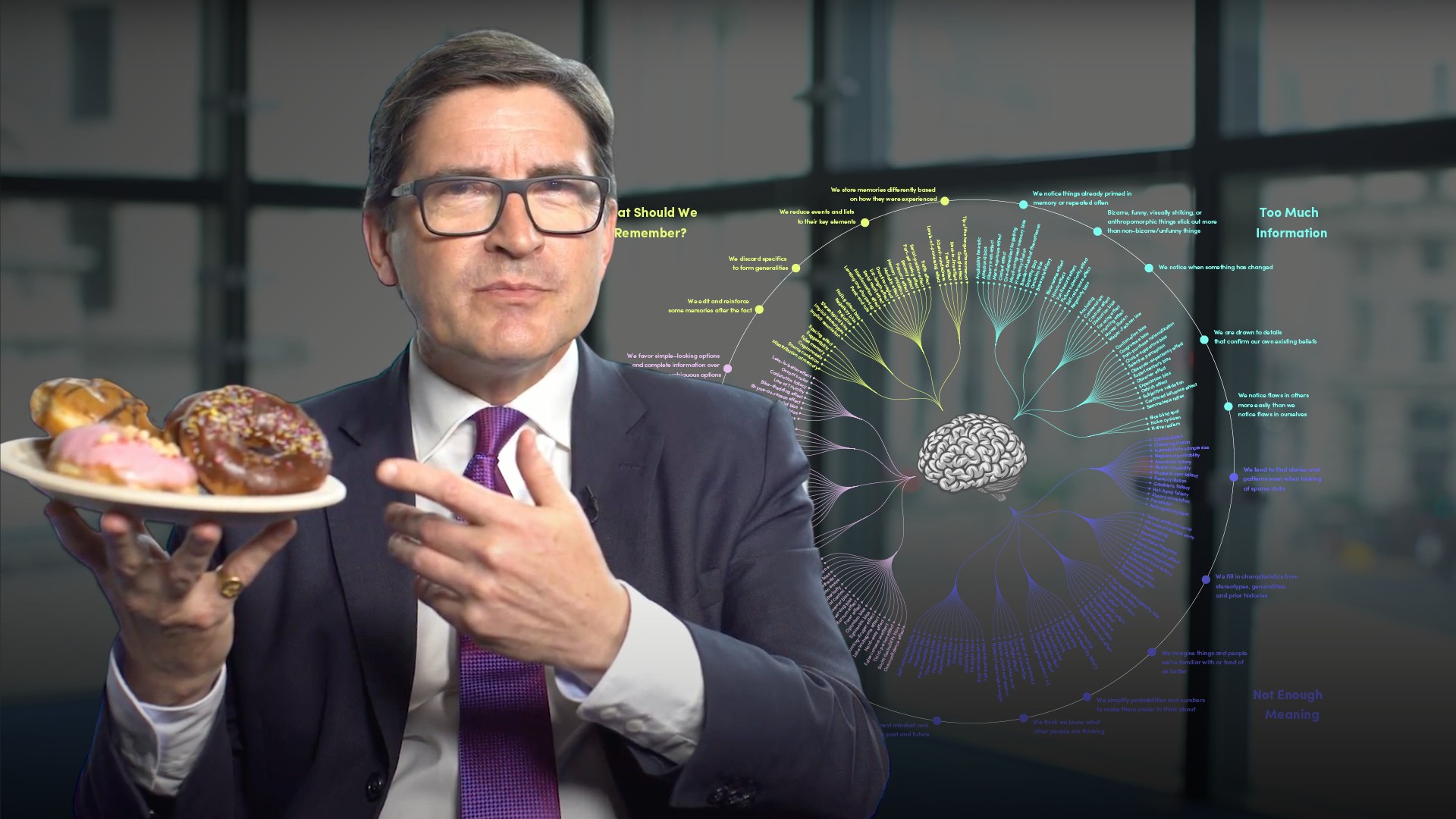
Introduction to Bias Effects

Roger Miles
25 years: Behavoural science & conduct
Conduct regulators are interested in why you behave the way you do. How your brain makes decisions largely dictates how you behave. As a result, it is beneficial to be aware of when we make decisions based on biases rather than rational judgements. In this video, Roger outlines some of the biases that impact decisions, namely: loss aversion, present bias, affect, overconfidence, projection and selective attention.
Conduct regulators are interested in why you behave the way you do. How your brain makes decisions largely dictates how you behave. As a result, it is beneficial to be aware of when we make decisions based on biases rather than rational judgements. In this video, Roger outlines some of the biases that impact decisions, namely: loss aversion, present bias, affect, overconfidence, projection and selective attention.
Subscribe to watch
Access this and all of the content on our platform by signing up for a 7-day free trial.

Introduction to Bias Effects
11 mins 50 secs
Key learning objectives:
Learn why biases exist
Explain hard thinking and how the brain deals with it
Describe the six key biases
Understand the regulator's interest in biases
Overview:
Conduct regulators are interested in why we behave the way we do. A big part of this is how the brain makes decisions, which is based on biases rather than fully rational judgements.
Subscribe to watch
Access this and all of the content on our platform by signing up for a 7-day free trial.
Why do we have biases?
We have biases because the brain has too much information to process, so it subconsciously filters out signals that may be irrelevant to concentrate on the most pressing pieces of information at any one time. These short cuts are called heuristics and cognitive biases.What is hard thinking and how does the brain deal with it?
Hard thinking includes dealing with decisions that involve:
- Ambiguity
- Long-term consequences
- Rationalising rapidly-changing contexts.
Hard thinking takes a lot of energy so the animal-brain sub-consciously mutes incoming signals it judges we don’t need to notice, using biases as short-cuts to get quickly past tasks that look like they will need a lot of hard thinking i.e. have heavy cognitive loads. Biases help us conduct routine tasks without straining the rational brain. But they can also lead us astray when there are complex management decisions to make.
Explain the six key biases
- Loss aversion
- Preferring to avoid the chance of a loss than take a similarly-costed chance of a win.
- Present bias
- Jumping in and not thinking about long-term consequences, especially when pushed for time.
- Affect
- Emotion in a decision-making context. Are we selling or buying on an emotional impulse? Has our client or customer bought using their head or their heart?
- Over-confidence
- While we’re averse to losing our assets, we are also positively wired for optimism, even if it can lead us astray. Positivity is fine; less so unchecked over-confidence.
- Projection
- Slipping into the assumption that the future will largely be the same as the past. Think about and question your risk model assumptions.
- Selective attention
- Believing what we want to believe a.k.a. cherry-picking; misdirecting/being misdirected; buying on a detail rather than the whole package.
Why are regulators interested in biases?
Regulators expect people in finance to be especially aware of and wary of biases that get in the way of sound rational decision-making. Conduct regulators want us to know about and think consciously about these biases and the risks they represent when we’re selling, designing products, or making day-to-day business decisions.Subscribe to watch
Access this and all of the content on our platform by signing up for a 7-day free trial.

Roger Miles
There are no available Videos from "Roger Miles"



























